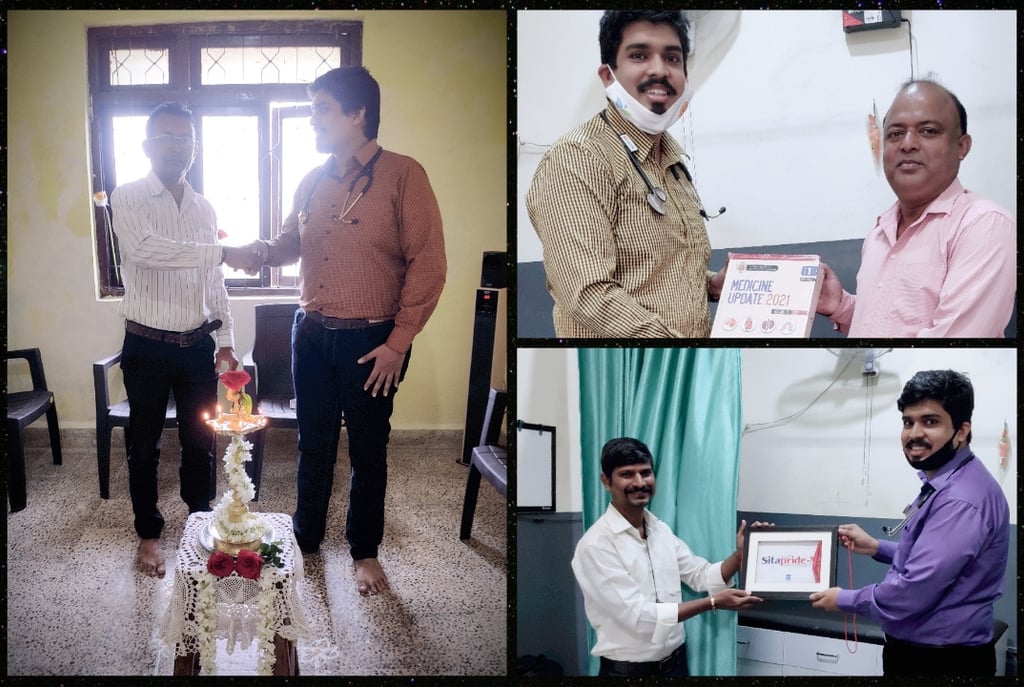Dr V. W. Verlekar
Embracing Change: The Key to Thriving in a Dynamic World
The Art of Embracing Change in a Dynamic World
Dr V. W. Verlekar
2/26/20243 min read


Adaptability and resilience in the face of change have always been key attributes of successful individuals and societies. In a world that seems to constantly shift and evolve, the art of embracing change has become a crucial skill to navigate through the dynamic landscape of the modern era. From technological advancements to social transformations, those who can embrace change with open arms are better equipped to thrive and flourish in this fast-paced world.
The world we live in today is far different from what it was just a few decades ago. Technological progress has revolutionized industries and reshaped our daily lives. The rise of automation, artificial intelligence, and the internet has transformed the way we work, communicate, and access information. In this ever-changing landscape, adaptability is no longer just a desirable trait but a necessity for success.
The Power of Adaptability
Adaptability is the ability to adjust to new conditions and circumstances. It is the capacity to embrace change and find innovative solutions to new challenges. In a rapidly evolving world, those who can adapt quickly and effectively are more likely to stay ahead of the curve.
Adaptable individuals possess a growth mindset, which allows them to see change as an opportunity for growth and learning. They are not afraid to step out of their comfort zones and try new things. Instead of resisting change, they embrace it and use it to their advantage.
One of the key benefits of adaptability is increased resilience. When faced with unexpected obstacles or setbacks, adaptable individuals are more likely to bounce back and find alternative solutions. They are not easily discouraged by failure but see it as a stepping stone towards success.
Adaptability is also closely linked to creativity and innovation. By being open to change, individuals are more likely to think outside the box and come up with fresh ideas. They are not bound by traditional ways of thinking and are willing to challenge the status quo.
The Role of Resilience
Resilience is another crucial attribute in navigating through a dynamic world. It is the ability to recover quickly from difficulties and setbacks. Resilient individuals have a strong sense of self-belief and are able to maintain a positive outlook even in the face of adversity.
Resilience allows individuals to bounce back from failure and persevere in the pursuit of their goals. It enables them to adapt to new circumstances and find alternative paths to success. Resilient individuals are not easily discouraged by obstacles but see them as opportunities for growth and personal development.
Furthermore, resilience helps individuals manage stress and maintain their well-being. In a world that is constantly changing, the ability to cope with stress and maintain a healthy work-life balance is essential. Resilient individuals are better equipped to handle the pressures and demands of a dynamic world without compromising their mental and physical health.
Developing Adaptability and Resilience
While some individuals may naturally possess a higher level of adaptability and resilience, these attributes can also be developed and nurtured over time. Here are some strategies to enhance adaptability and resilience:
Embrace a growth mindset: Cultivate a mindset that sees change as an opportunity for growth and learning. Be open to new ideas and perspectives.
Step out of your comfort zone: Challenge yourself to try new things and take calculated risks. Push yourself beyond your limits and embrace the unknown.
Build a strong support network: Surround yourself with positive and supportive individuals who can provide guidance and encouragement during times of change and uncertainty.
Practice self-care: Take care of your physical and mental well-being. Engage in activities that help you relax and recharge.
Learn from failure: Instead of being discouraged by failure, view it as an opportunity to learn and grow. Analyze your mistakes and make adjustments for future success.
Stay adaptable: Continuously seek new knowledge and skills. Be open to feedback and be willing to adapt your approach when necessary.
Conclusion
In a world that is constantly changing, adaptability and resilience have become essential skills for success. Those who can embrace change and navigate through uncertainty are better equipped to thrive in a dynamic world. By cultivating a growth mindset, stepping out of our comfort zones, and building resilience, we can embrace change with open arms and unlock our full potential in this fast-paced era.

